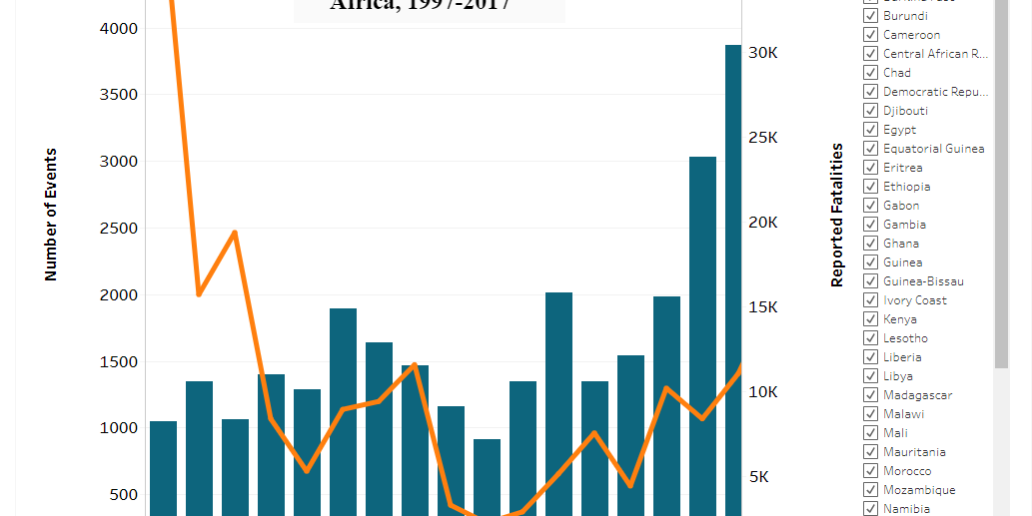This interactive visual displays maps and charts featuring an overview of African political violence and protest trends from 1997 – 2017. Apply or remove filters by country and event type to broaden or limit your assessment of the data.

Posted: 12 March 2018| Region: Africa | Category: Africa
Authors: Melissa Pavlik; Roudabeh Kishi

Melissa Pavlik is a former ACLED Research Consultant. Melissa focused on overarching trends of armed conflict across and within ACLED’s regions of study. She has degrees in Statistics and Political Science from the University of Chicago, and in War Studies from King’s College London. Her research focus includes violent non-state actors, conflict mapping, and American foreign policy.
Roudabeh Kishi previously served as the Director of Research & Innovation at ACLED. She oversaw research at the organization, including data collection via the regional research desks, methodology team, and management of research partnerships; data science and analysis; and communications. Dr. Kishi holds a PhD in Government and Politics from the University of Maryland. She has worked as a consultant for numerous organizations around political violence, peace and conflict, development, gender, and quantitative data methods.
Regions: Africa
We are pleased to announce that a new-and-improved version of our website will be launching soon. It is built to offer a faster, more intuitive, user-friendly way for you to access our data, analysis, and visualization platforms. More details coming soon…